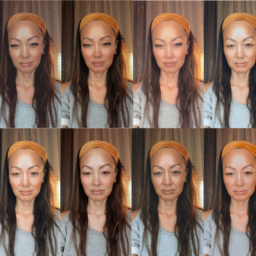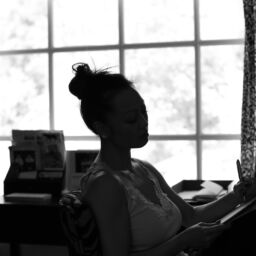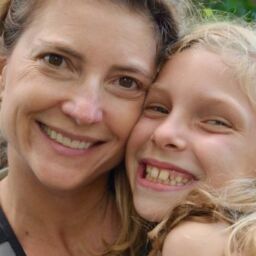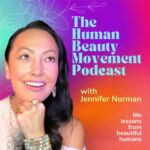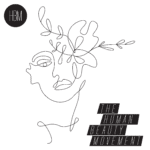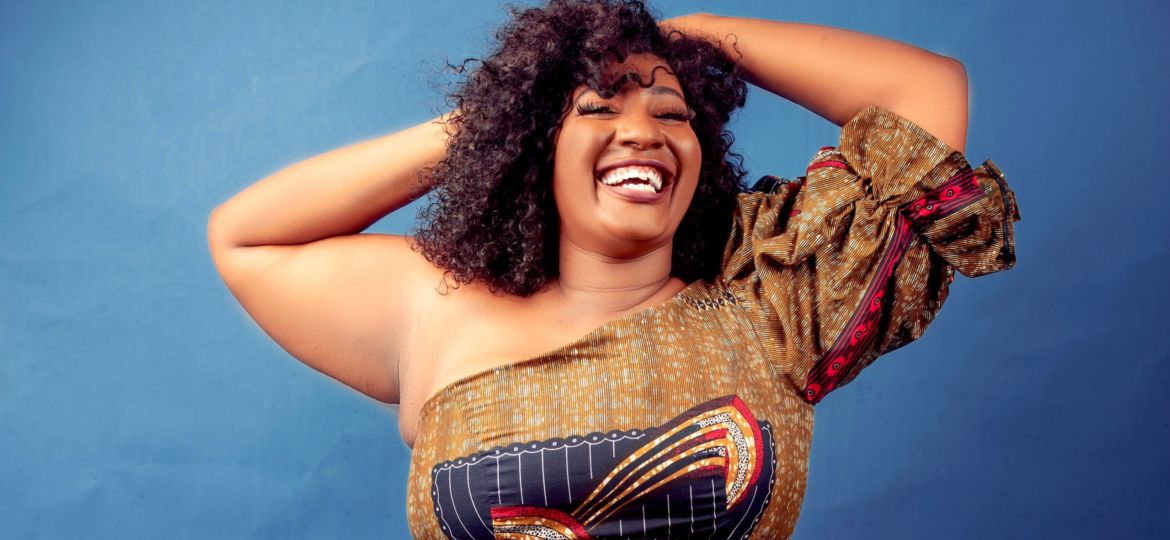
The subject of weight loss is usually a positive one, commonly accompanied by your peers praising you for dropping the pounds you’ve struggled with seeing in the mirror for years. If this is your goal in the light of mental and physical health, congratulations! However weight loss, for many, is a double-edged sword; ravaging the mental health of those losing weight for negative reasons. There are two sides to every story, and when it comes to weight, happiness is the most beautiful story.
Danielle Knutson and Erika Schnure have battled weight loss and dealt with the negative impacts it can have on your body image and mental health. While their circumstances are different, both women found out that weight loss, usually being a positive social construct, can be damaging to your entire being; it’s not always something to celebrate.
I Was Happy, Then I Found Out I Have Cancer
Danielle Knutson was 31 and working as a mental health social worker at the Veterans Administration hospital in Palo Alto, CA. when she was diagnosed with triple-negative stage 2A breast cancer. “I was teaching masters level social work at San Jose State University,” she explains. “But now, I’m 32 and have had to quit my jobs due to my diagnosis.”
At the beginning of Danielle’s diagnosis, she had extreme fatigue and could not stay awake longer than 12 hours. Finding a lump in her breast caused Danielle to seek professional help. “I knew I had cancer because the ultrasound tech started holding her breath while she was doing the ultrasound,” she says. “She then took me to a radiologist who said ‘Oh no, you’re so young!”’
Danielle had no family history of breast cancer, so the news came as a surprise. What she didn’t expect, though, was the journey she would take not only to battle cancer but her self confidence.
Pictured: Danielle before (left) and after (right) her diagnosis
The HBM: You were told to lose weight before your diagnosis. How did this make you feel?
Danielle: My doctors had been telling me to cut down on my weight for a few years. I was weighing around 190 pounds at the time and I am 5’7. I gained weight with my job and also when I started antidepressants for my obsessive-compulsive disorder and post-traumatic stress disorder.
When my doctors told me to lose weight, I was perplexed as to how I was going to do so. I was so busy with work and felt like the little free time I had was going towards exercise. I felt like the doctors told me to lose weight but did not have any advice as to how I would do so. They also didn’t tell me why I needed to lose weight. My cholesterol and blood pressure were fine – I didn’t understand.
The HBM: You mentioned in a Tik Tok video that after beginning chemo, your doctors told you that you had lost too much weight. What was going through your mind?
Danielle: Chemotherapy impacts your fertility so before I started chemo, I went through the process of taking hormones and freezing my eggs in case I have fertility issues in the future. As soon as I started hormones, my eating habits changed dramatically. People are impacted in different ways by hormones, but for me, I got very nauseated and could not eat as much as I had previously. Chemotherapy made this even worse. Everything tasted like metal, and I was unable to eat without vomiting. In a little over a month, I dropped down to 165 pounds.
My doctors explained that when you’re going through chemotherapy, you need a lot of nutrients to help your body and immune system stay as healthy as possible. They were constantly telling me to eat more and to not worry about eating only healthy food.
“It was so confusing for me,” she stated, explaining that she didn’t understand why weighing 165 was so bad when before cancer, her doctors told her that 155 lbs. was her ideal weight; feeling as if nothing she did regarding her weight was “correct” and that there was always something wrong with how she was looking or how her body was constructed.
The HBM: How did weight loss affect your daily life?
Danielle: It was miserable. I felt awful the entire time I was losing the weight, and I felt weak after losing so much so quickly. I had no energy and my body was lethargic. I didn’t recognize my body. A part of me liked looking thinner, despite feeling terrible physically, but I missed food. I would dream about eating a meal and feeling full. I never felt full. I was always hungry but everything tasted terrible.
It was hard to spend time with family and friends because I was always making excuses for why I couldn’t eat and people were worried about me.
The HBM: Did your body image change? Did this cause any depression or anxiety?
Danielle: When I was first diagnosed, I thought my body image was pretty stable and that it wouldn’t be impacted. Unfortunately, I was naive. Losing weight made me look sick. When I looked in the mirror and saw my weight loss and hair loss, it really impacted my self-image.
I’ve struggled with depression and anxiety throughout my entire life, and the depression came in full force when I lost my hair, eyelashes, eyebrows, and weight. I didn’t recognize myself, and I felt lost. I had lost my ability to present myself like I wanted to.
The HBM: How have you learned to cope with your diagnosis and the weight loss that accompanies cancer?
Danielle: It is a continual process of learning. Connecting with others who have experienced cancer has been incredibly normalizing and helpful. I’ve learned that many people lose weight during chemo and many others gain weight. It has forced me to examine the role that weight plays in my self-image and recognize that my self worth isn’t tied to numbers on a scale.
Pictured: Danielle before (left) and after her diagnosis (right)
The HBM: Why do you think people rarely see that weight loss isn’t always a milestone to be celebrated?
Danielle: Our society is obsessed with maintaining an image that is easily consumed in one way or another. We want to be sexy, admired; we want to look like we are in control. The reality is that weight is complicated and is impacted by many things. It isn’t the indicator of health we’ve been told it is. I was much healthier when I was “overweight.” Even now, when people see me, they STILL compliment me on my weight loss.
The HBM: It’s amazing that you are using various platforms to educate and get your story out there. Plus, you’ve amassed a huge TikTok following with 14.3 thousand current followers. Has blogging and making TikToks helped you along your journey?
Danielle: Honestly, I never thought I would say this, but TikTok has been my greatest source of emotional support through my cancer treatment outside of my therapy. I have found such a great group of folks who have struggled with cancer and have learned so many things that have helped me navigate this bizarre world of treatment. My TikTok friends have taught me how to manage bone pain from chemo, nausea, and how to cope with the constant anxiety and mood changes brought about through treatment.
Blogging is a much easier way to communicate compared to trying to verbally explain the experience to others because it’s difficult to verbalize something that is so visceral and takes time to sort out my thoughts. It has also been such a great way to document my memories and emotions so I can look back and see how far I’ve come. I am so grateful for social media right now.
The HBM: According to your TikTok, you are currently in remission. Can we have any updates?
Danielle: Absolutely! I am currently in remission as of September 2021. The great news is that the chemotherapy and radiation worked! Unfortunately, my type of cancer, triple negative breast cancer, has about a 60% rate of recurrence within 3 years. After 3 years, if it doesn’t come back, the chances of it resurfacing are less than 5%. With my age and overall health, it’s less likely than 60%, but the general average numbers show that percentage. So we will see in 2024 how I am doing!
You can follow more of Danielle’s journey through her TikTok and blog, Kicking Cancer’s Ass, where she posts about different aspects of cancer and her experiences.
I Was Happy, Then I Reached My Goal Weight
Chicago native Erika Schnure, 29, knew that she was overweight and that she did not want to become like her mother who struggled with diabetes. “I saw how much she was struggling,” explains Erika. “I didn’t want to go through that as well.” So in November of 2011, she decided to start trimming her 230-pound frame to benefit her health.
At the beginning of her journey, she lost 50 pounds by making simple tweaks to her eating habits, especially by cooking more meals at home instead of picking up fast food. When Erika plateaued, she incorporated running into her routine. “I liked the runners high that I got,” she says. “I liked the competition and challenging myself to constantly do better.”
As of April 2013, Erika weighed about 140 pounds, which was her goal weight. Meeting this milestone, though, did not make her as happy as she had expected. Her weight loss spurred depression that she’s been dealing with for years.
Source: Women’s Health Magazine
For Women’s Health Magazine, Erika opens up about the emotional battle and depression she faces after finally hitting her goal weight.1
Women’s Health Magazine: What do you think occurred after your weight loss that led to your depression?
Erika: One thing I think contributed to this was that during your weight-loss journey, you’re working for something for so long. And then when you’re done, it feels like, “Well, what now?” Losing weight was my life for about 17 months, and I didn’t know what to do without that goal in my life.
Weight loss was like a mission for me. I had to set another goal, but I had no idea what that would be. Losing weight was something I did for such a long time that it felt like I lost a friend. This journey made me really happy—to see myself losing weight—and when it was over, there was nothing else there.
I was still obsessed with weighing myself every day even though I was already at my goal weight. Any time that scale moved, I got upset about it. I had worked so hard to meet my goal that if I gained two pounds or something, I thought my weight would spiral again.
Women’s Health Magazine: So how did that affect your daily life?
Erika: I stressed over maintaining my weight. Around the time I reached my goal weight, I was training for a half-marathon. But I freaked out every time I gained a little bit of weight—which happened because I was eating too much for what I was training for. There’s a delicate balance there that you have to figure out.
At a certain point, I also lost all of my motivation to do anything. I was still eating fine, but I pretty much stopped exercising—which could’ve also been due to the Chicago winter. But I wasn’t interested in exercising. I’d come home and watch TV.
I tried to do some workouts at home—like DVDs—but usually, I wanted to just sit around. Exercising was my productive way of de-stressing. If I had a really bad day at work, I would look forward to coming home and running because I could “run” that stress and anger out of me. But then I wasn’t relieving my stress in a productive way—or at all.
Women’s Health Magazine: So you definitely have a lingering fear about gaining weight?
Erika: Oh, yeah. I’ve gained a little bit back, but there’s a huge fear of going back to the way I used to be. I still keep a pair of size 18 jeans as a reminder that I can’t go back to that weight. I can’t do it.
Women’s Health Magazine: What about your new body image? Does that also play a role?
Erika: There’s a part to weight loss that people don’t tell you about: It’s that you aren’t going to look like a supermodel afterwards. You may have skin issues that you wouldn’t really think about.
Women’s Health Magazine: What do you mean by that exactly?
Erika: It’s really all of the excess skin. Of course, it’s different if you lose 20 pounds versus 100 pounds. I have a lot of sagging skin on my stomach that puckers a little bit. It doesn’t look awesome. It’s the same thing with my upper arms. I do love some parts of my new body—like my runner’s legs—but it’s really about my stomach. Someone close to me said that I couldn’t wear a bikini because of it.
Women’s Health Magazine: How do you cope with hurtful comments like that?
Erika: Yes, sometimes I’m self-conscious about my stomach. But everyone has their imperfections. People have said, “Oh gross, look at her stomach,” but I don’t care. I earned the right to wear a bikini, so I’m going to do it.
Women’s Health Magazine: You’re so brave to admit all of this. What have you done to fight depression from taking over completely?
Erika: It’s something I still struggle with. But if I think about how I felt back then, I realize I don’t want to feel like that again, and I know what I have to do to not go back there. I have to stay active. A few weeks ago I started paying for a fitness program because if I pay for something, I’m more likely to stick with it. Plus, my boyfriend encourages me, so that helps, too.
At the end of the day, Erika and Danielle have stories that are theirs and theirs alone. Like everyone else, they both have unique ideas and outlooks regarding weight, beauty, and health; nobody has a wrong opinion and it is time we celebrate true health. Both of these women are beautiful for speaking out and representing the people who have not had the chance to speak up. Beauty is not binary; and the happiness of each individual on Earth is more beautiful than the social construct that has been built on the shallow mistakes of our past icons.
—
Resources:
https://www.womenshealthmag.com/life/a19935972/weight-loss-and-depression/ [1]




